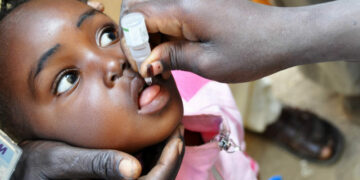As the world marks World Diabetes Day on November 14 with the theme “Diabetes Across Life Stages”, Nigeria confronts a grim reality that should alarm every citizen and policymaker.
The country is staring down a health catastrophe that claims an estimated 30,000 lives annually, yet receives a fraction of the attention and resources it desperately needs.
The Diabetes Association of Nigeria has called for nothing less than a state of emergency on diabetes care. The question is whether the government will respond with the urgency this crisis demands, or whether this will be yet another call that dies in the echo chamber of official indifference.
The numbers are staggering. About 11.4 million Nigerians currently live with diabetes, according to the national president of the Diabetes Association of Nigeria, Prof. Ejiofor Ugwu. But the actual figure could be more than double that number because many cases remain undiagnosed due to the absence of routine screening.
Nigeria now has the highest number of diabetes cases in Africa and ranks among countries with the highest diabetes mortality rates globally. This is not a badge of honour.
What makes this situation particularly tragic is not just the scale of the problem, but the criminal neglect that has allowed it to fester. Of those diagnosed, only a third receive appropriate treatment. And of those on treatment, only about a third achieve reasonable control.
Do the maths: roughly one in nine diagnosed patients actually get the care they need. The rest are left to pray, resort to unproven alternative medicines, or simply die quietly while the healthcare system fails them spectacularly.
The economics of survival have become obscene. The average monthly cost of diabetes management now stands between N100,000 and N120,000, a 500 percent increase over the past three years. In a country where the minimum wage is N70,000, we’re asking citizens to spend more than their entire monthly income just to manage a single chronic disease.
The DGI Consult, a not-for- profit organisation study, found that only Nigerians who earn above N2.5 million annually can afford regular diabetes care without falling into debt. For everyone else, managing diabetes has become a luxury they cannot afford.
The human stories behind these statistics are heartbreaking. Insulin which once cost N2,000, now sells for between N10,000 and N18,000. Monthly medication expenses have soared from N80,000 to N180,000.
As Gatefield’s Research and Insight Lead, Farida Adamu, put it: “For many, it’s a choice between buying food or medicine.” When citizens are forced to choose between eating and staying alive, something has gone fundamentally wrong with governance.
The systemic failures are multiple and interconnected. There’s a critical shortage of trained healthcare workers, particularly diabetes specialists, in rural areas. We lack a recent national survey on diabetes prevalence, meaning we’re essentially fighting blind. There’s no national diabetes policy or strategic plan. Essential medicines are in short supply because we rely almost entirely on imports, yet we’ve done nothing to incentivise local production. And unhealthy cultural beliefs continue to drive people toward prayers and alternative remedies as their “only hope of survival.”
This is a governance failure of the first order. Diabetes kills more Nigerians annually than HIV, tuberculosis and malaria combined, yet it receives nowhere near the same level of policy attention or funding. While we’ve made strides in addressing these other diseases through targeted interventions, diabetes has been left to ravage the population with minimal coordinated response.
But there’s a deeper question about priorities. The proposed Sugar-Sweetened Beverages tax is a step in the right direction for prevention, but prevention alone won’t save the 11.4 million Nigerians already living with the disease. They need access to affordable medication now. These are people watching their limbs waste away, going blind, suffering kidney failure and dying prematurely because insulin costs more than they can possibly afford.
The recommendations from experts are clear and actionable. First, the government must develop a national diabetes policy and strategic plan immediately. Second, essential diabetes drugs and consumables must be subsidised, with full tax waivers on their importation. Third, the proposed Affordable Medicines Facility for Diabetes should be adopted to reduce retail prices. Fourth, the National Health Insurance Authority coverage must be expanded to include all antidiabetic medicines and laboratory services. Fifth, local medicine production needs support through tax incentives and low-interest loans.
None of these recommendations is unrealistic or unaffordable for a country of Nigeria’s resources. What’s missing is the political will. The federal government has shown it can move quickly and decisively when it wants to. The question is whether Nigerian lives matter enough to command the same urgency.
In our view, the government faces a clear choice. It can declare the state of emergency that medical professionals are demanding, mobilise resources, implement the recommended interventions and save thousands of lives annually. Or it can continue with business as usual, offering empty platitudes while citizens die from a manageable chronic disease.
The Diabetes Association of Nigeria has raised the alarm. Civil society organisations have provided the data and recommendations. The ball is now squarely in the government’s court. For the 11.4 million Nigerians living with diabetes, and the millions more at risk, the answer is literally a matter of life and death.





